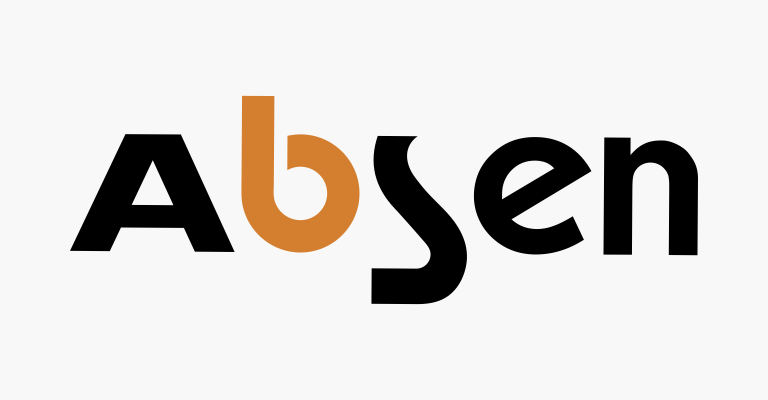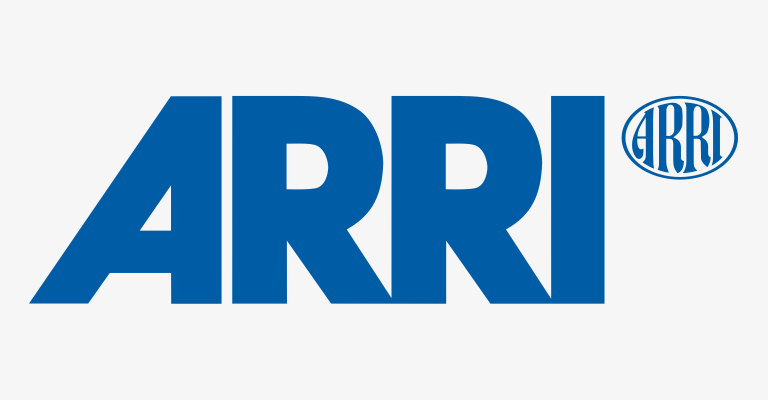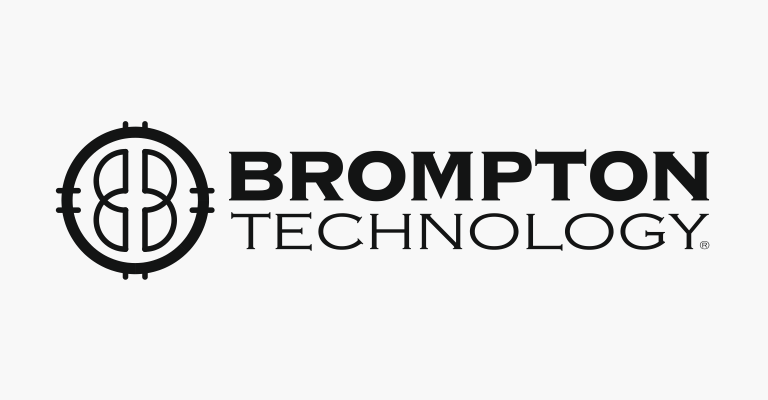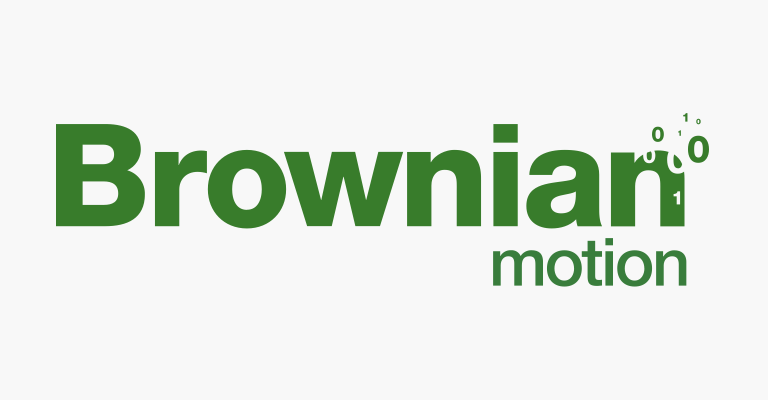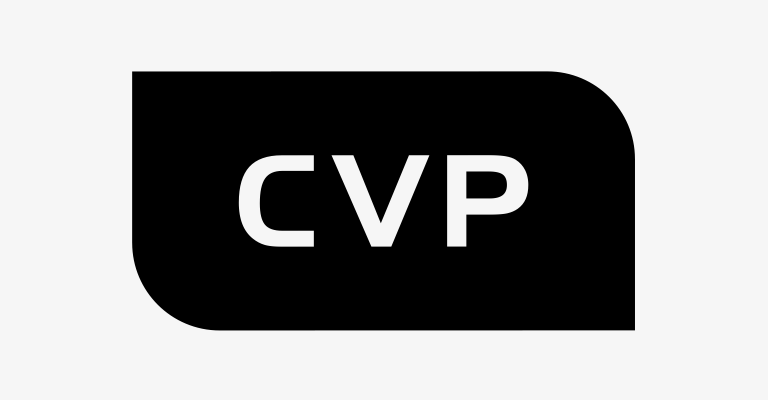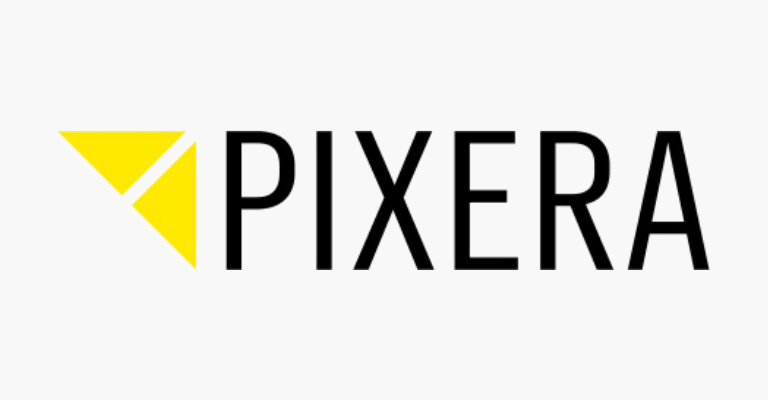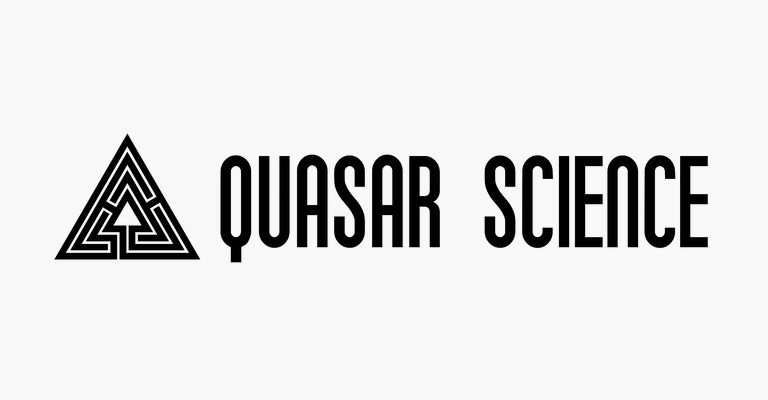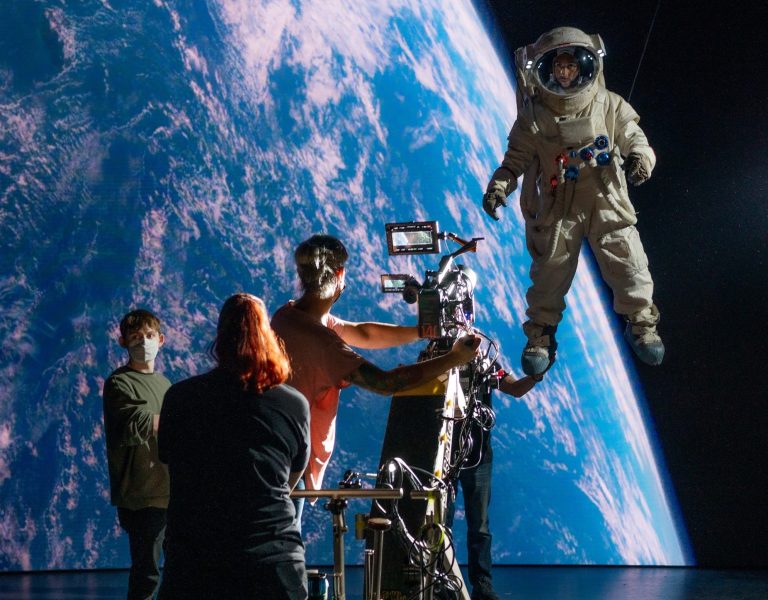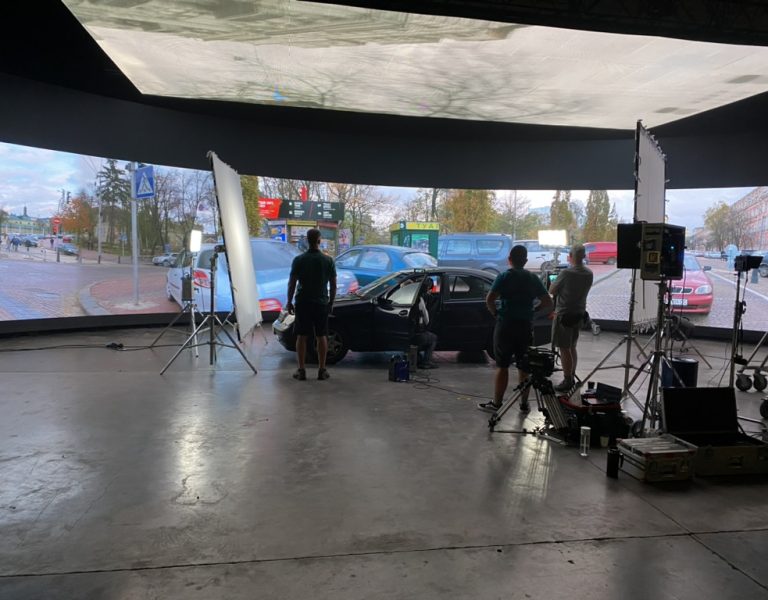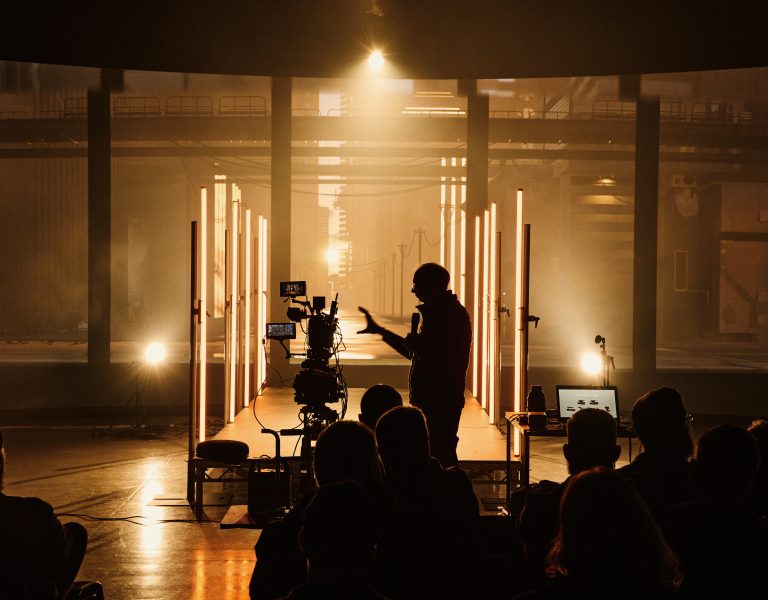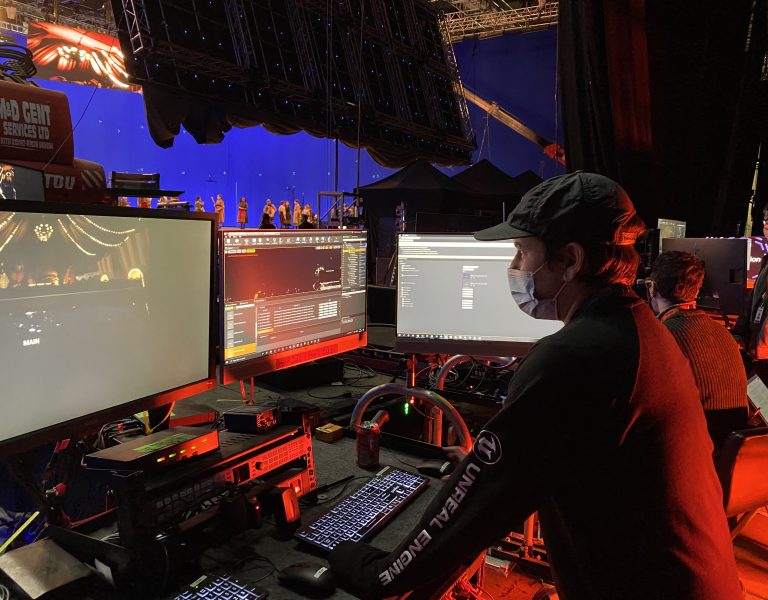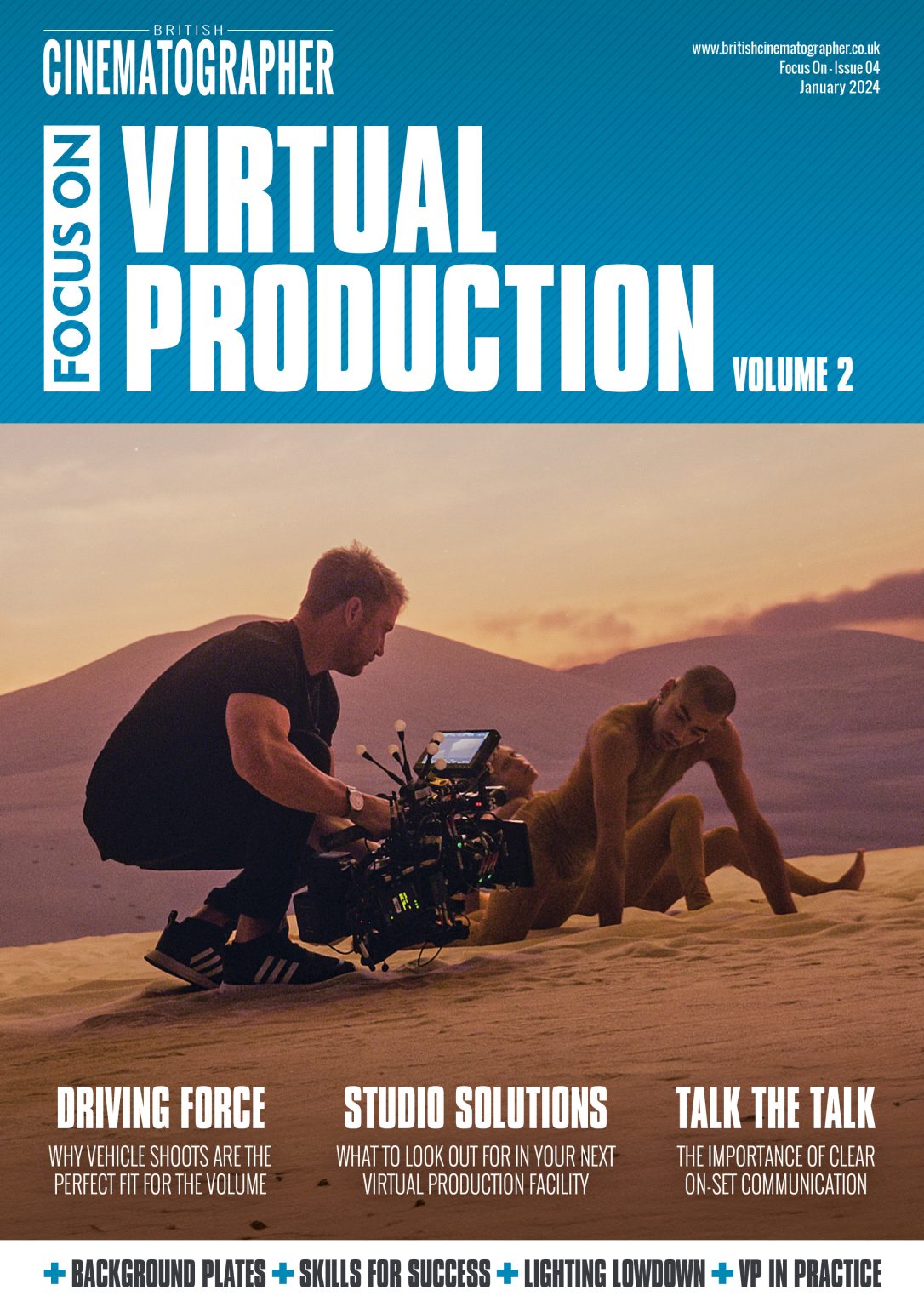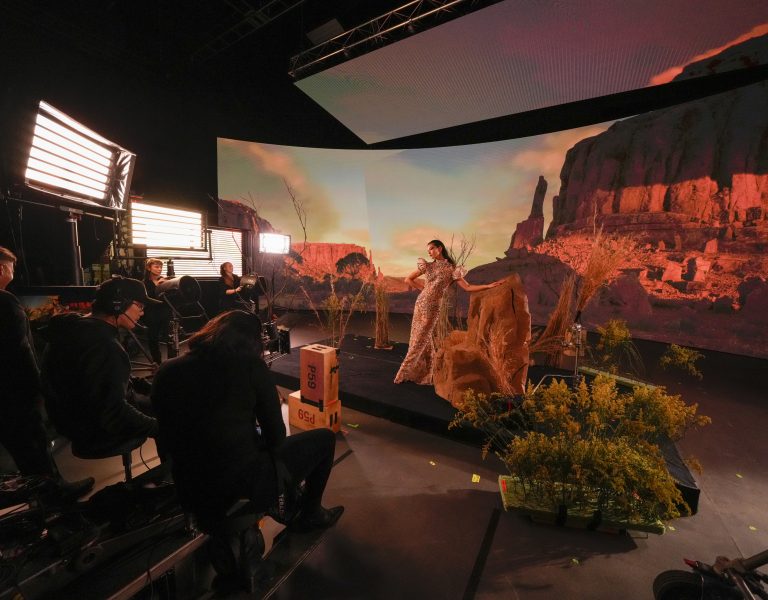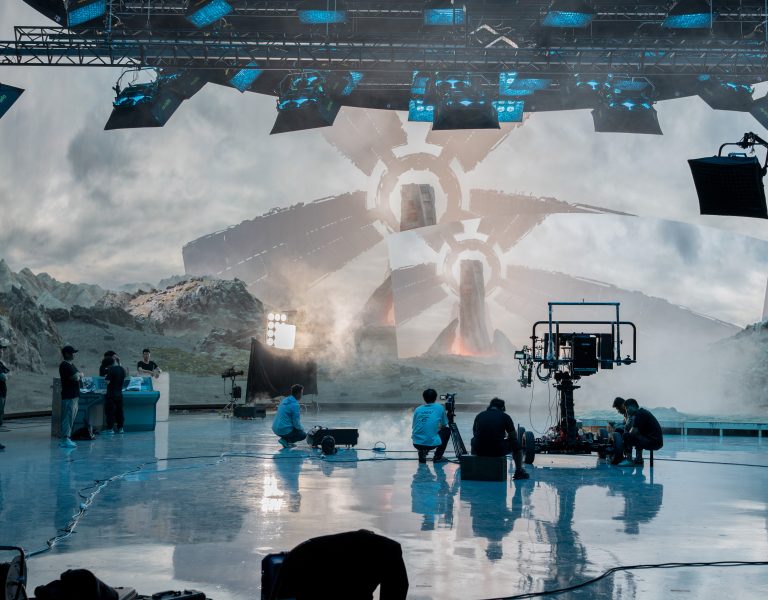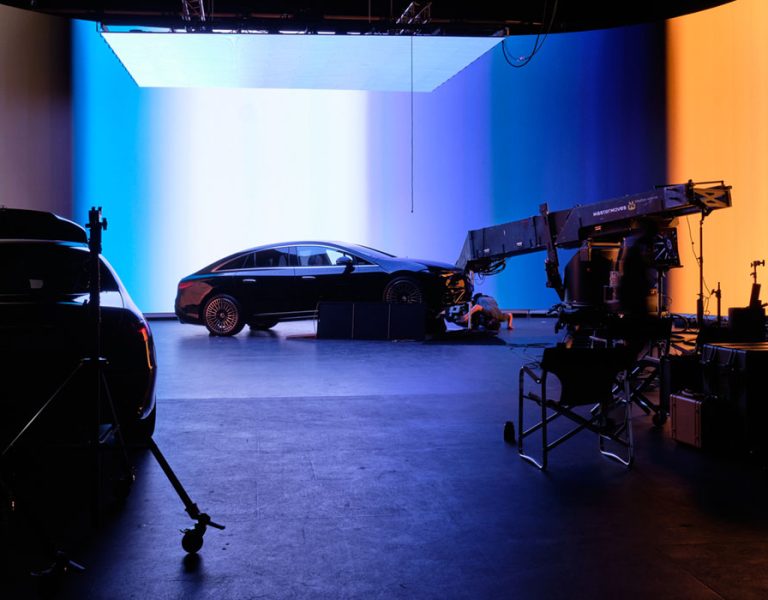Racquet Studios delivers a flexible approach to virtual production.
Despite housing a sizeable community of production talent and with a significant heritage as a location for film and TV shoots, Eastbourne, East Sussex and the South Coast, in general, have lacked specialist studio infrastructure.
That is until now. Opened in June 2023 and set to expand in 2024, Racquet Studios offers the region’s leading hybrid filmmaking solution, marrying physical location shooting with a creative, turnkey virtual production facility, to guarantee the weather, light and time of day. The studio facility has been conceived and is run by the well-established, Sussex-based creative agency, Mediabite Group, who offer a variety of creative media solutions that now extend into VP.
“The project has been developed to drive virtual film production, technological development and skills in the south east,” explains Racquet Studios’ Managing Director Simon Skinner. “Working with our tech and education partners, we continue to develop our centre of excellence to expand the evolution of specialist solutions and skills for createch industries.”
A pebble’s throw from Eastbourne Beach and nestled among a host of bars, restaurants, hotels and boutiques, the location is proving itself as a popular choice, attracting productions that are eager to experience an alternative to industrial studio sites.
Just as important is the facility’s infrastructure which comprises three central spaces, with full fibre and HD-SDI patching, on-site catering, showers, storage, wardrobe facilities, and crew. There is also a large green screen cove and all peripheral outboard equipment.
Racquet Studios’ main space hosts an 8 x 4m LED volume that’s well suited to short-form applications, including pick-ups, music promos and commercials, while the larger, soundproofed facilities with dock loading are suited to bespoke/ complex configurations and extensive volumes with larger foreground sets, including car rigs.
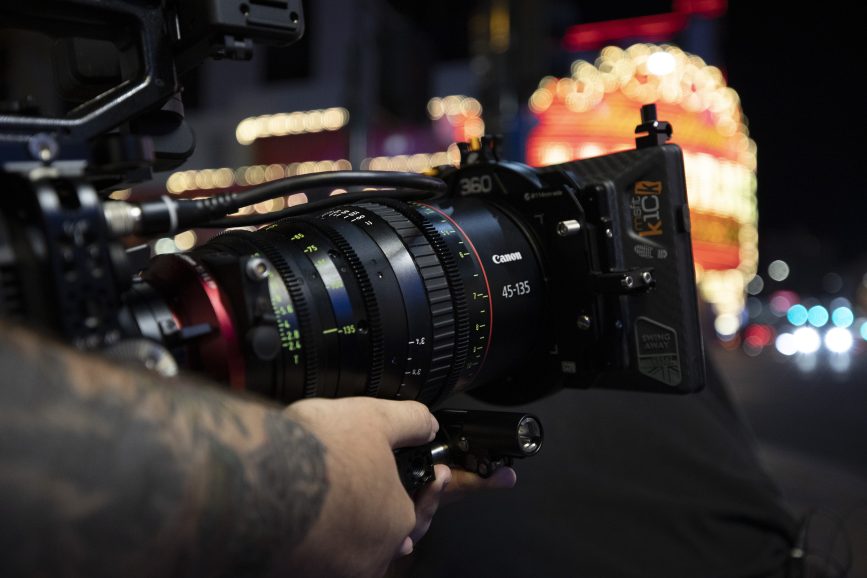
“If we’re rigging a larger stage, we can supply additional crew and LED floors, ceilings and 180-degree volumes. We will build a volume stage that’s tailored to the project,” Skinner says.
“VP is rapidly becoming part of the filmmaker’s toolbox,” he adds. “It may only be required for a single scene, rather than the whole shoot. As such, our flexible approach is critical to ensure the best value and result for our clients. As filmmakers become more familiar with VP, the understanding and quality are also improving. Our team is on hand from the very outset to assist from asset creation and testing, to post.”
Racquet has recently announced a strategic partnership with Video Screen Services (VSS) to support the studio’s dynamic approach to VP, giving the studio’s clients tremendous flexibility and peace of mind, regardless of the scale or complexity of their production.
“Key to our partnership with VSS is the ability for Racquet Studios to offer an unparalleled level of adaptability which allows us to work on projects on a case-by-case basis, offering bespoke solutions wherever they are required, rather than a one-size-fits-all approach.”
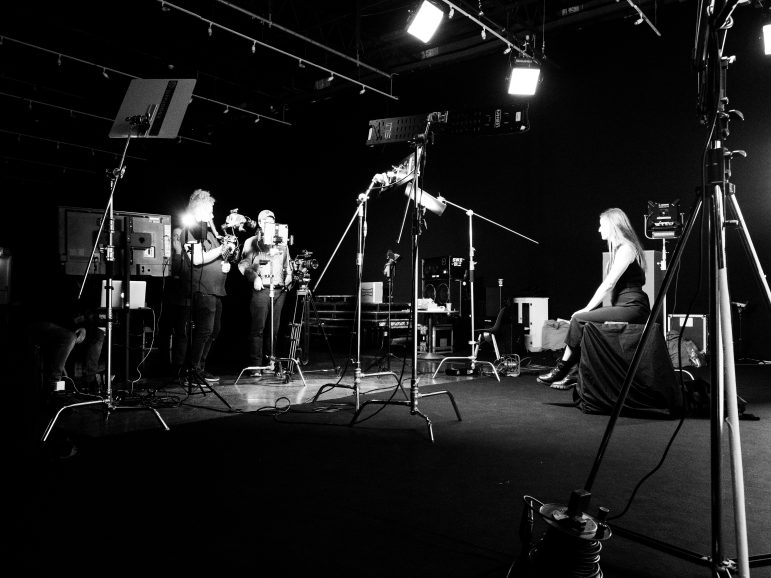
Experienced team
Virtual production at Racquet typically comes with a degree of wet hire. Not least in terms of equipment, but also in terms of crew to support beginners or to assist more experienced filmmakers, ensuring the best quality results. “We have engineers who can devise assets and workflow from scratch,” says Skinner. “If content or maps are created elsewhere, we will test before anybody arrives on site. We’ve seen all the pitfalls and can guide anybody through what is possible and what solutions to recommend.”
The in-house team also brings with it experience in creating assets from photogrammetry processes. These can be used to capture and digitally recreate objects or locations for shooting as AR assets or backgrounds in a volume stage. This is particularly useful for pick-ups, when weather, access or other limitations can be an issue.
Racquet’s image-based lighting within the permanent stage is provided by a combination of Quasar Science Double Rainbows; multi-pixel linear LED tubes, which are arrayed in banks overhead and on either side of the stage alongside ambient lighting. They are surrounded by an array of powerful and colour-accurate Gemini 1×1 Hard RGBWW LED panels. The combination delivers low-latency, dynamic foreground lighting to the 3D environment.
“We can produce real-time pixel-mapped lighting direct from any scene, taking colour and light information from the 3D world to emulate in the real world,” says Rob Ruardy, Racquet’s Technical Director. It is of course imperative to shoot with lighting that’s authentic to your scene on any set, and especially on a volume stage. “As with any stage, foreground lighting to augment your virtual set is incredibly important,” Ruardy says. “If you’ve only got light coming from your screen and from behind your foreground assets, you’ll just see silhouettes.”
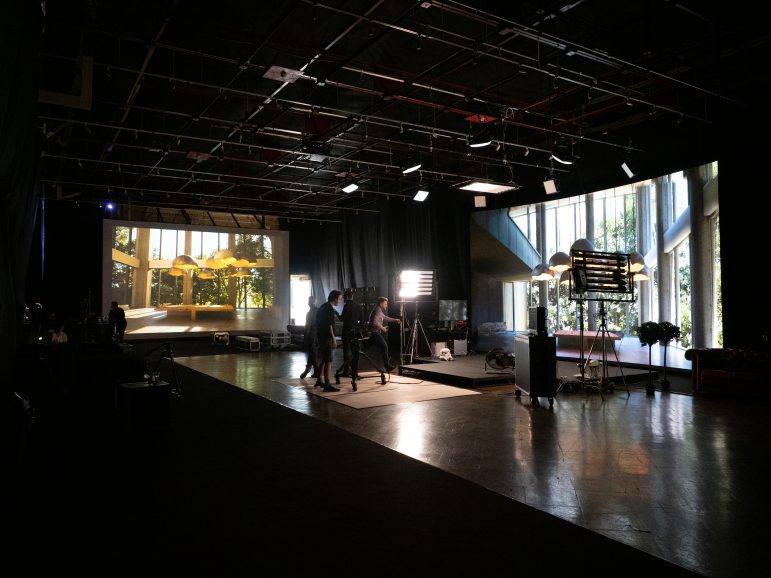
A key value of the facility is the team’s ability to get productions up and running by testing content before moving to another stage for principal photography with all the expense of trial and error that entails.
As an example, the team recently worked with VSS to install a 14-metre-wide volume stage with all content assets pre-tested at Racquet. This meant the production team arrived on site with all problems ironed out and were able to work without losing a minute of downtime.
Canon is also working with Racquet as a technical partner, providing a range of equipment for testing, R&D and training purposes. This kit includes the Flex Zoom 45-135mm, which Ruardy calls a ‘game changer’.
“There’s still not a great deal of technology on the market that has been designed specifically for VP, but it feels like the Flex Zoom has as it’s so well suited. It feels like a prime throughout the focal range, meaning no loss of time in swapping out lenses and recalibrating. It’s an incredibly convenient tool that looks great.”
The lens is an ideal solution for virtual production because of its high-end optical performance and advanced lens metadata functionality, via Cooke-i Technology and Zeiss eXtended Data protocols on PL mounts. There is also a Lemo 4-pin connector on the Flex Zoom that allows metadata support for cameras that don’t comply with these protocols.
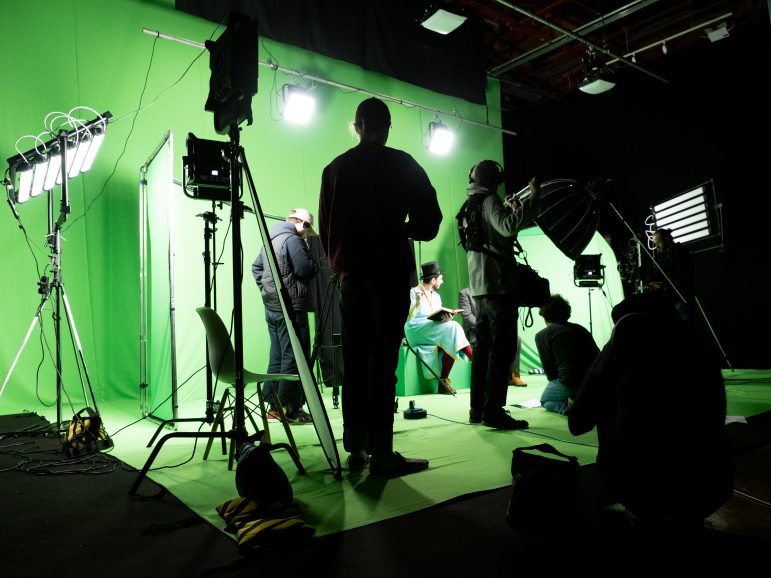
Comprehensive training programme
Racquet Studios has teamed up with local and national education partners including the BFI and East Sussex College, as well as Canon Europe and Videndum Production Solutions, to deliver a comprehensive training programme on all aspects of traditional and contemporary filmmaking.
The programme will help to address the skills gap in virtual production and mocap, offering further/higher-education placements and apprenticeships. Along with courses in virtual production management, production management for screen, audio and virtual production, the programme will include a series of CPD courses across emerging technologies in the sector.
Skinner says, “Training is critical not least due to the skills gap in the industry as a whole and especially when it comes to VP. We aim to deliver training to grow the skills base of the sector right across the South East and beyond. With our partners, we will help develop a pipeline of skills to help develop the next generation of UK creatives.”
Whether you’re in film, HETV, broadcast, film, gaming, advertising, music, design or other creative industries, Racquet Studios is the perfect partner for your next production.
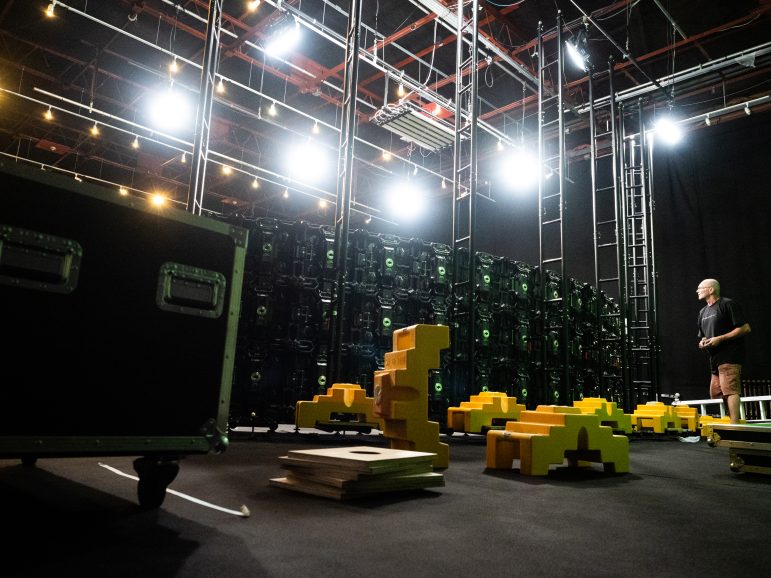
www.racquet.studio
–
Words: Adrian Pennington
This article is sponsored by Canon.
